Search titles
Displaying results 201 to 210 of 628.

The Contest for Aboriginal Souls »
European missionary agendas in Australia
Authored by: Regina Ganter
Publication date: May 2018
This book covers the missionary activity in Australia conducted by non-English speaking missionaries from Catholic and Protestant mission societies from its beginnings to the end of the mission era. It looks through the eyes of the missionaries and their helpers, as well as incorporating Indigenous perspectives and offering a balanced assessment of missionary endeavour in Australia, attuned to the controversies that surround mission history. It means neither to condemn nor praise, but rather to understand the various responses of Indigenous communities, the intentions of missionaries, the agendas of the mission societies and the many tensions besetting the mission endeavour. It explores a common commitment to the supernatural and the role of intermediaries like local diplomats and evangelists from the Pacific Islands and Philippines, and emphasises the strong role played by non-English speakers in the transcultural Australian mission effort.
This book is a companion to the website German Missionaries in Australia – A web-directory of intercultural encounters. The web-directory provides detailed accounts of Australian missions staffed with German speakers. The book reads laterally across the different missions and produces a completely different type of knowledge about missions. The book and its accompanying website are based on a decade of research ranging across mission archives with foreign-language sources that have not previously been accessed for a historiography of Australian missions.
‘A remarkable intellectual achievement, compelling reading.’
— Dr Niel Gunson
‘The range of knowledge on display here is very impressive indeed.’
— Professor Peter Monteath
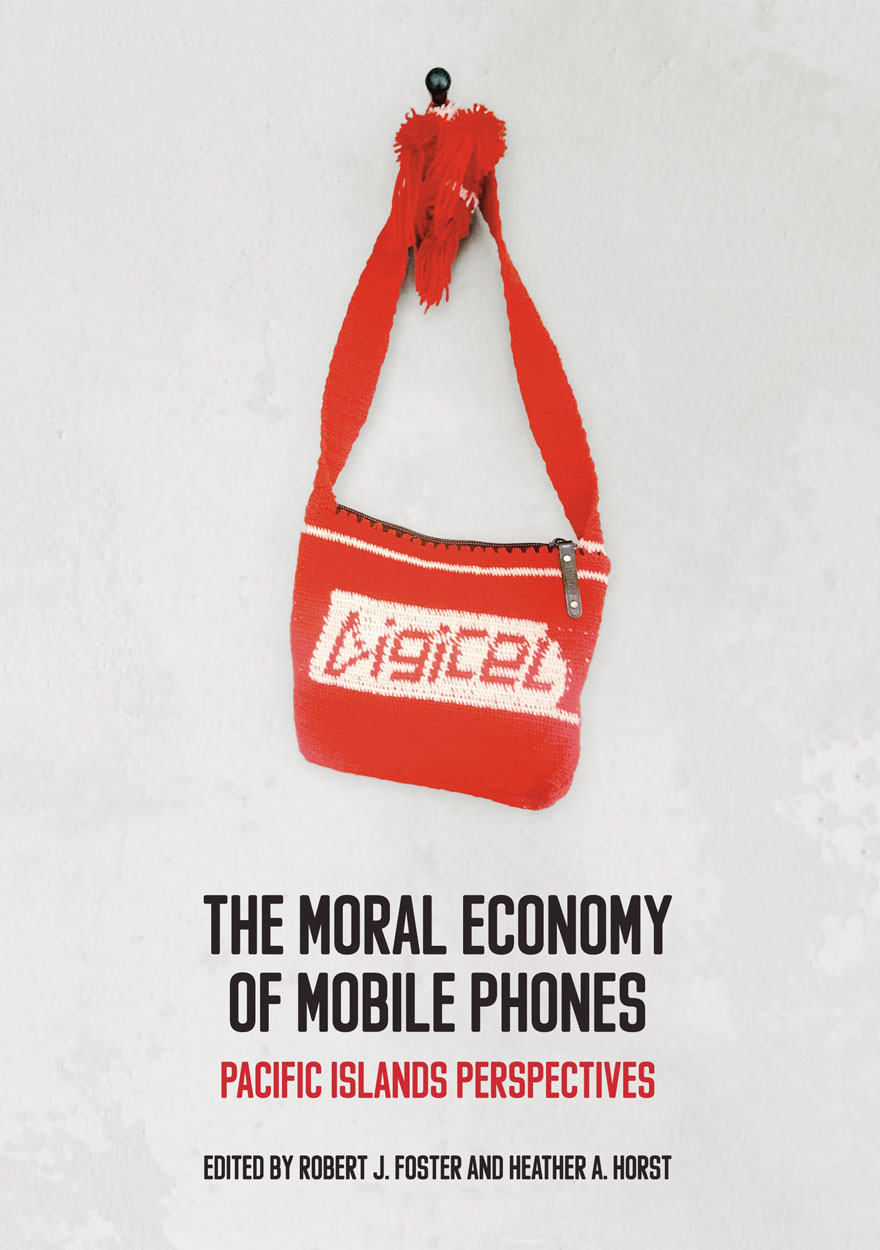
The Moral Economy of Mobile Phones »
Pacific Islands Perspectives
Edited by: Robert J. Foster, Heather A. Horst
Publication date: May 2018
The moral economy of mobile phones implies a field of shifting relations among consumers, companies and state actors, all of whom have their own ideas about what is good, fair and just. These ideas inform the ways in which, for example, consumers acquire and use mobile phones; companies promote and sell voice, SMS and data subscriptions; and state actors regulate both everyday use of mobile phones and market activity around mobile phones. Ambivalence and disagreement about who owes what to whom is thus an integral feature of the moral economy of mobile phones. This volume identifies and evaluates the stakes at play in the moral economy of mobile phones. The six main chapters consider ethnographic cases from Papua New Guinea, Fiji and Vanuatu. The volume also includes a brief introduction with background information on the recent ‘digital revolution’ in these countries and two closing commentaries that reflect on the significance of the chapters for our understanding of global capitalism and the contemporary Pacific.

International Review of Environmental History: Volume 4, Issue 1, 2018 »
Edited by: James Beattie
Publication date: May 2018
International Review of Environmental History takes an interdisciplinary and global approach to environmental history. It encourages scholars to think big and to tackle the challenges of writing environmental histories across different methodologies, nations, and time-scales. The journal embraces interdisciplinary, comparative and transnational methods, while still recognising the importance of locality in understanding these global processes.
The journal’s goal is to be read across disciplines, not just within history. It publishes on all thematic and geographic topics of environmental history, but especially encourage articles with perspectives focused on or developed from the southern hemisphere and the ‘global south’.
Download for free
Not available for purchase
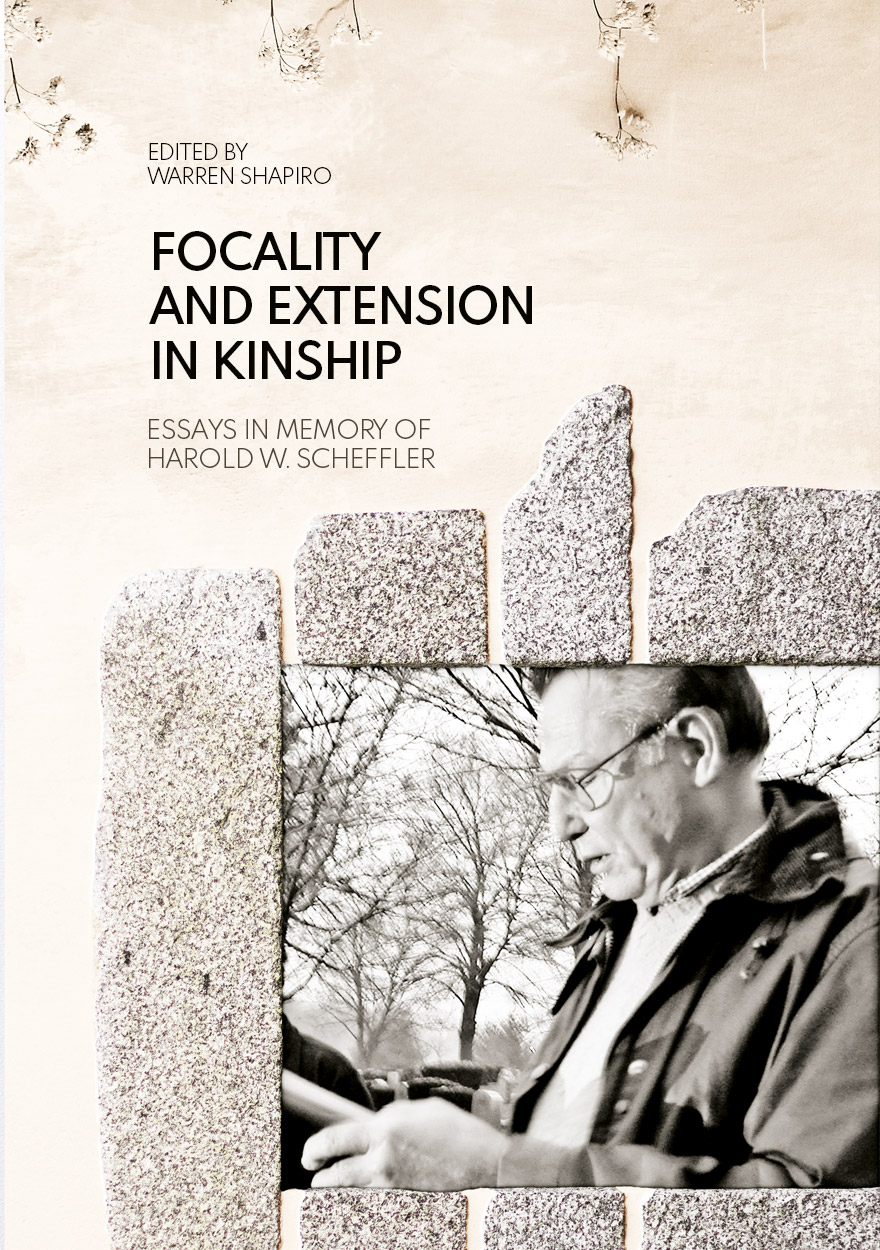
Focality and Extension in Kinship »
Essays in Memory of Harold W. Scheffler
Edited by: Warren Shapiro
Publication date: April 2018
When we think of kinship, we usually think of ties between people based upon blood or marriage. But we also have other ways—nowadays called ‘performative’—of establishing kinship, or hinting at kinship: many Christians have, in addition to parents, godparents; members of a trade union may refer to each other as ‘brother’ or ‘sister’. Similar performative ties are even more common among the so-called ‘tribal’ peoples that anthropologists have studied and, especially in recent years, they have received considerable attention from scholars in this field. However, these scholars tend to argue that performative kinship in the Tribal World is semantically on a par with kinship established through procreation and marriage. Harold Scheffler, long-time Professor of Anthropology at Yale University, has argued, by contrast, that procreative ties are everywhere semantically central, i.e. focal, that they provide bases from which other kinship ties are extended. Most of the essays in this volume illustrate the validity of Scheffler’s position, though two contest it, and one exemplifies the soundness of a similarly universalistic stance in gender behaviour. This book will be of interest to everyone concerned with current controversy in kinship and gender studies, as well as those who would know what anthropologists have to say about human nature.
“The study of kinship once ruled the discipline of anthropology, and Hal Scheffler was one of its magisterial figures. This volumes reminds us why. Scheffler’s powerful analyses of kinship systems often conflicted with the views of his more relativist contemporaries. He cut through the fog of theory to emphasise the human essentials, namely the importance of the social bonds rooted in motherhood and fatherhood. Anthropology in its decades-long retreat from the serious study of kinship has lost a great deal. This volume points the way to a restoration.”
— Peter Wood, National Association of Scholars
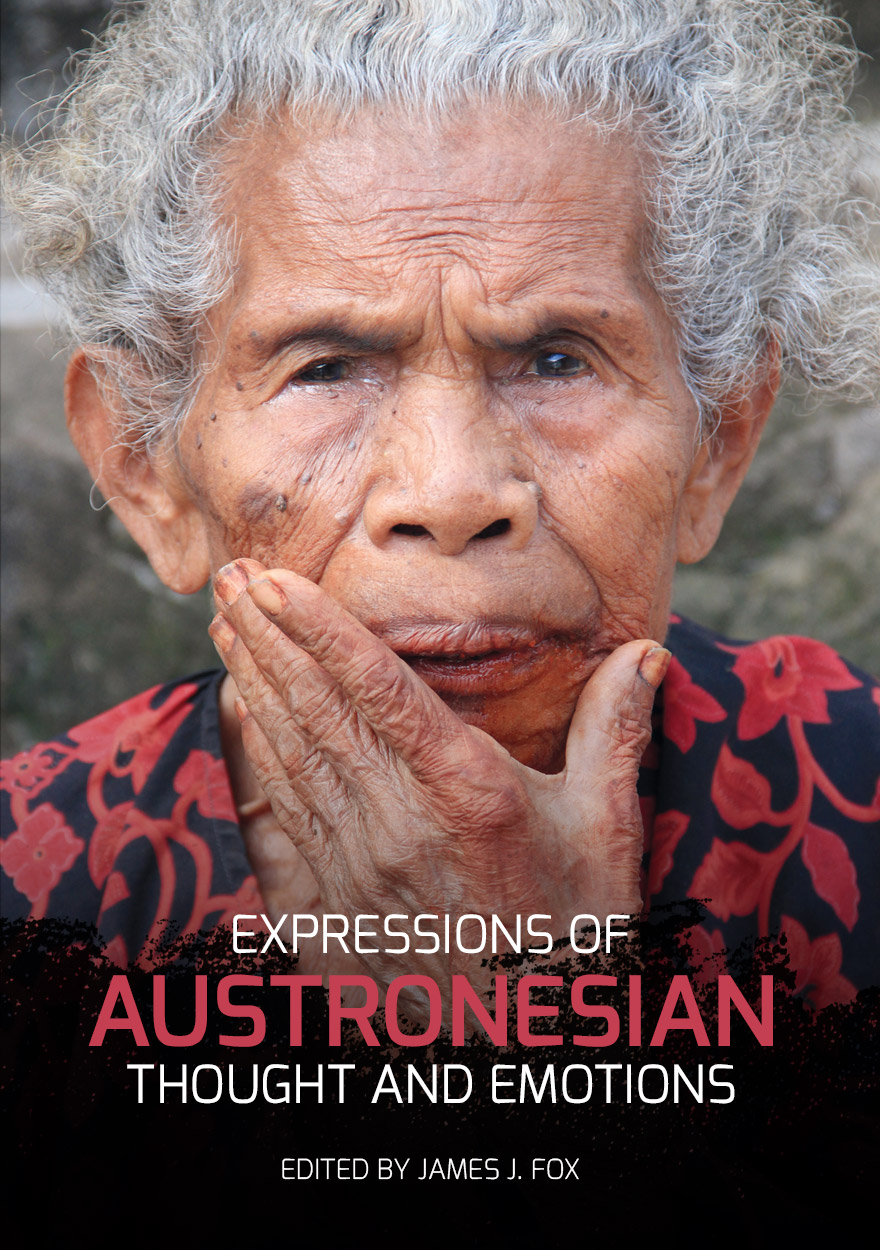
Expressions of Austronesian Thought and Emotions »
Edited by: James J. Fox
Publication date: April 2018
This collection of papers is the seventh volume in the Comparative Austronesian series. The papers in this volume focus on societies from Sumatra to Melanesia and examine the expression and patterning of Austronesian thought and emotions.

The Quest for the Good Life in Precarious Times »
Ethnographic Perspectives on the Domestic Moral Economy
Edited by: Chris Gregory, Jon Altman
Publication date: April 2018
The study of the quest for the good life and the morality and value it presupposes is not new. To the contrary, this is an ancient issue; its intellectual history can be traced back to Aristotle. In anthropology, the study of morality and value has always been a central concern, despite the claim of some scholars that the recent upsurge of interest in these issues is new. What is novel is how scholars in many disciplines are posing the value question in new ways. The global economic alignments of the present pose many political, moral and theoretical questions, but the central issue the essays in this collection address is: how do relatively poor people of the Australia–Pacific region survive in current precarious times? In looking to answer this question, contributors directly engage the values and concepts of their interlocutors. At a time when understanding local implications of global processes is taking on new urgency, these essays bring finely honed anthropological perspectives to matters of universal human concern—they offer radical empirical critique based on intensive fieldwork that will be of great interest to those seeking to comprehend the bigger picture.

Prosperity »
Edited by: Jane Golley, Linda Jaivin
Publication date: April 2018
A ‘moderately prosperous society’ with no Chinese individual left behind—that’s the vision for China set out by Chinese President Xi Jinping in a number of important speeches in 2017. ‘Moderate’ prosperity may seem like a modest goal for a country with more billionaires (609 at last count) than the US. But the ‘China Story’ is a complex one. The China Story Yearbook 2017: Prosperity surveys the important events, pronouncements, and personalities that defined 2017. It also presents a range of perspectives, from the global to the individual, the official to the unofficial, from mainland China to Hong Kong and Taiwan. Together, the stories present a richly textured portrait of a nation that in just forty years has lifted itself from universal poverty to (unequally distributed) wealth, changing itself and the world in the process.

Hybridity on the Ground in Peacebuilding and Development »
Critical Conversations
Publication date: March 2018
Hybridity on the Ground in Peacebuilding and Development engages with the possibilities and pitfalls of the increasingly popular notion of hybridity. The hybridity concept has been embraced by scholars and practitioners in response to the social and institutional complexities of peacebuilding and development practice. In particular, the concept appears well-suited to making sense of the mutually constitutive outcomes of processes of interaction between diverse norms, institutions, actors and discourses in the context of contemporary peacebuilding and development engagements. At the same time, it has been criticised from a variety of perspectives for overlooking critical questions of history, power and scale. The authors in this interdisciplinary collection draw on their in‑depth knowledge of peacebuilding and development contexts in different parts of Asia, the Pacific and Africa to examine the messy and dynamic realities of hybridity ‘on the ground’. By critically exploring the power dynamics, and the diverse actors, ideas, practices and sites that shape hybrid peacebuilding and development across time and space, this book offers fresh insights to hybridity debates that will be of interest to both scholars and practitioners.
‘Hybridity has become an influential idea in peacebuilding and this volume will undoubtedly become the most influential collection on the idea. Nuance and sophistication characterises this engagement with hybridity.’
— Professor John Braithwaite
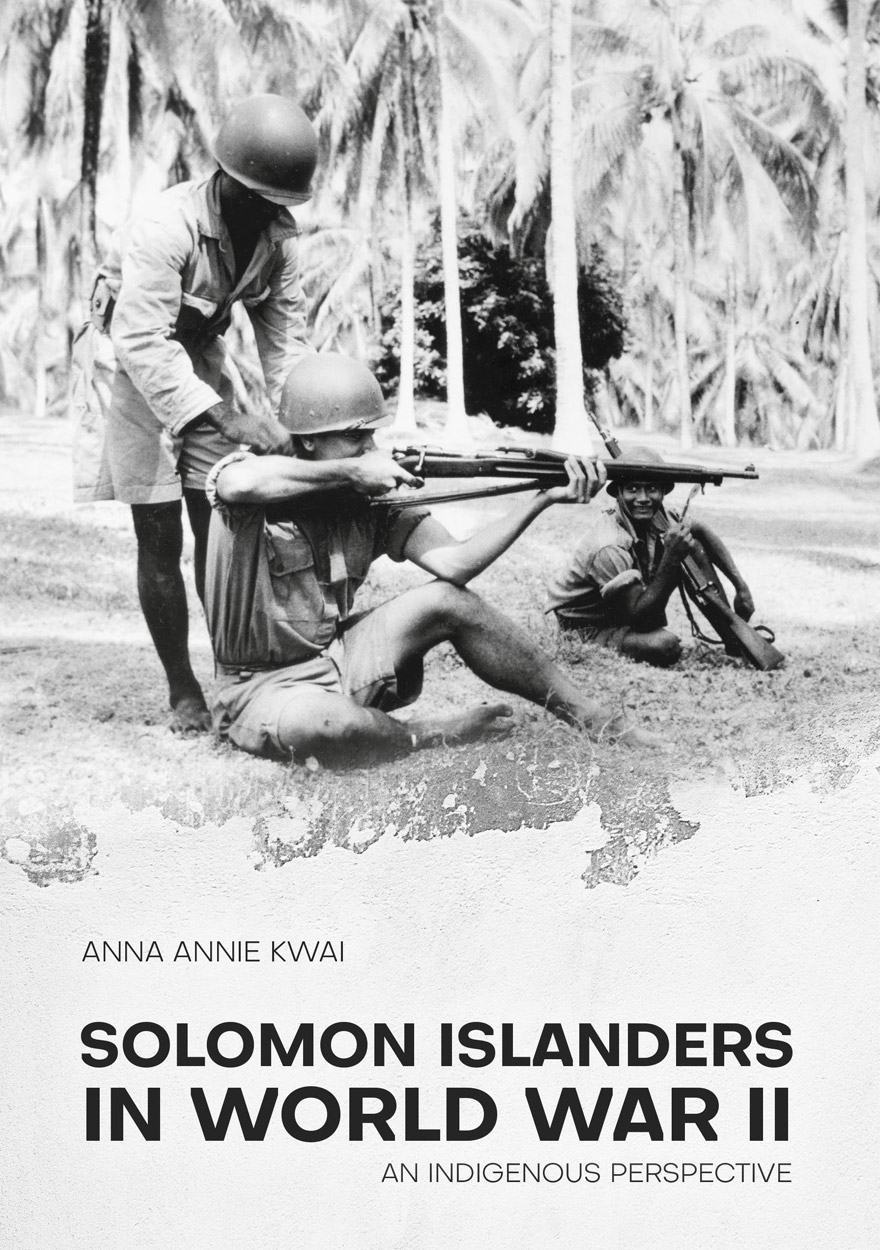
Solomon Islanders in World War II »
An Indigenous Perspective
Authored by: Anna Annie Kwai
Publication date: December 2017
The Solomon Islands Campaign of World War II has been the subject of many published historical accounts. Most of these accounts present an ‘outsider’ perspective with limited reference to the contribution of indigenous Solomon Islanders as coastwatchers, scouts, carriers and labourers under the Royal Australian Navy and other Allied military units. Where islanders are mentioned, they are represented as ‘loyal’ helpers. The nature of local contributions in the war and their impact on islander perceptions are more complex than has been represented in these outsiders’ perspectives. Islander encounters with white American troops enabled self-awareness of racial relationships and inequality under the colonial administration, which sparked struggles towards recognition and political autonomy that emerged in parts of the British Solomon Islands Protectorate in the postwar period. Exploitation of postwar military infrastructure by the colonial administration laid the foundation for later sociopolitical upheaval experienced by the country. In the aftermath of the 1998 crisis, the supposed unity and pride that prevailed among islanders during the war has been seen as an avenue whereby different ethnic identities can be unified. This national unification process entailed the construction of the ‘Pride of our Nation’ monument that aims to restore the pride and identity of Solomon Islanders.
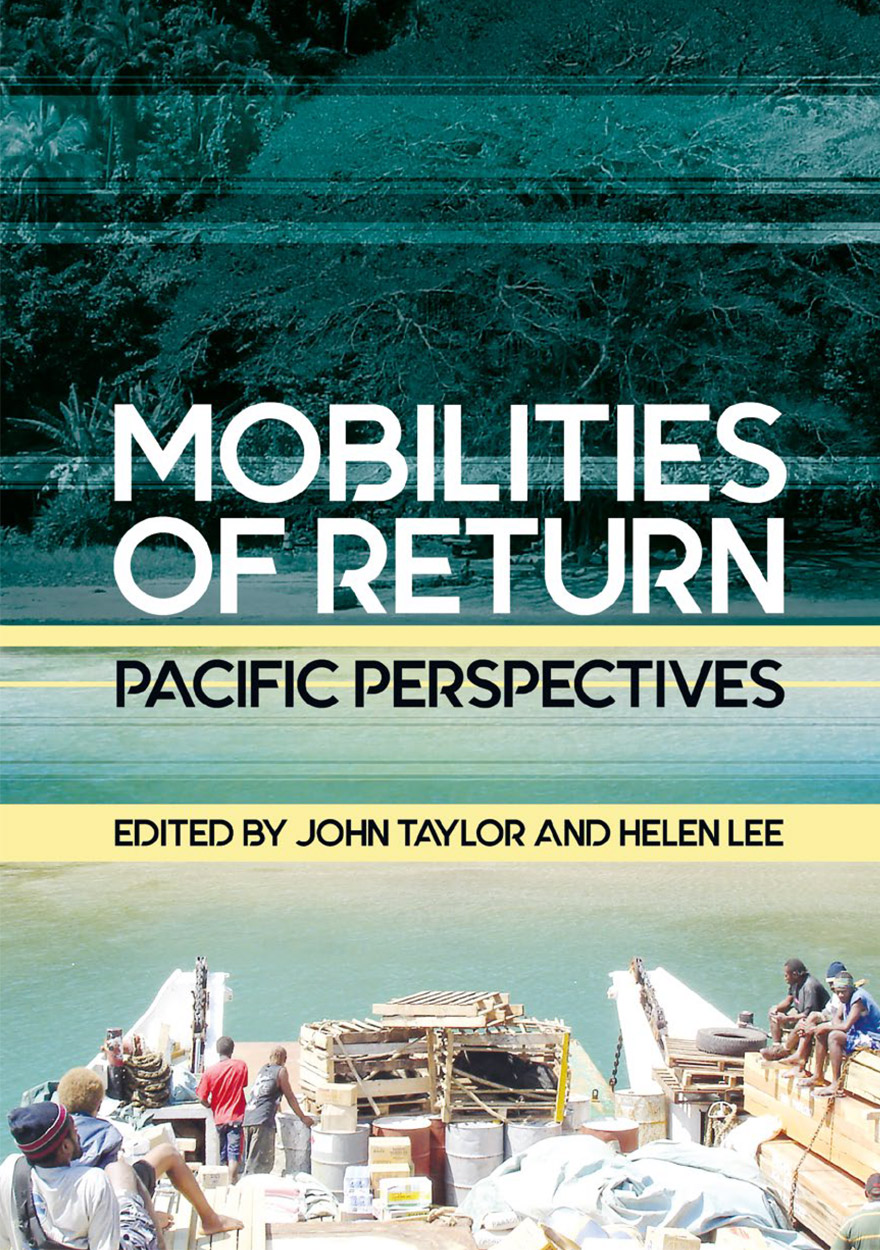
Mobilities of Return »
Pacific Perspectives
Edited by: John Taylor, Helen Lee
Publication date: December 2017
In recent decades, the term ‘mobility’ has emerged as a defining paradigm within the humanities. For scholars engaged in the multidisciplinary topics and perspectives now often embraced by the term Pacific Studies, it has been a much more longstanding and persistent concern. Even so, specific questions regarding ‘mobilities of return’—that is, the movement of people ‘back’ to places that are designated, however ambiguously or ambivalently, as ‘home’—have tended to take a back seat within more recent discussions of mobility, transnationalism and migration.
This volume situates return mobility as a starting point for understanding the broader context and experience of human mobility, community and identity in the Pacific region and beyond. Through diverse case studies spanning the Pacific region, it demonstrates the extent to which the prospect and practice of returning home, or of navigating returns between multiple homes, is a central rather than peripheral component of contemporary Pacific Islander mobilities and identities everywhere.



